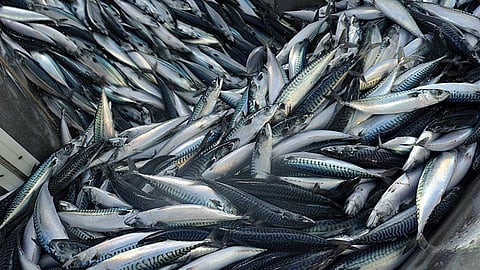

The EU fishing industry is deeply disappointed with the partial agreement reached between the UK, Norway, and the Faroe Islands on the sharing of the Northeast Atlantic mackerel fishing opportunities. This agreement does not solve the critical issue of catches exceeding the Total Allowable Catch set in line with scientific advice. Instead, it rewards the setting of excessive, inflated unilateral quotas by some parties in recent years.
Therefore, the EU industry urges all coastal states to resume their consultations on a comprehensive sharing arrangement that should reflect genuine, sustainable track records and interests. It also calls on the European Commission and the Council of the EU to take concrete action against the setting of excessive, artificially increased unilateral quotas and make use of the instruments at their disposal, such as trade measures.
This spring, the Northeast Atlantic Coastal States again failed to agree on a sharing agreement for the mackerel fishery. Further talks will in any case not be resumed before September.
Meanwhile, on June 17, the UK, Norway, and the Faroe Islands signed a trilateral agreement on their quotas and shares in the Total Allowable Catch for 2024, 2025, and 2026. The three have awarded themselves 27.48 per cent (UK for 2024), 27.83 per cent (UK for 2025 and 2026), 31 per cent (Norway), and 13.35 per cent (Faroe Islands). The trilateral agreement is supported by bilateral agreements that result in the UK receiving a total of 33,462 tonnes of quota from Norway and Faroes in exchange for access to UK waters for those countries to fish up to 154,384 tonnes of mackerel.
The three parties invite the other coastal states to join the agreement, but the remaining portion is utterly incompatible with historic shares, recent track records, and genuine economic interest. Furthermore, it legitimises continuous overfishing by some on the basis of excessive, inflated unilateral quotas that stray far from the shares applicable under the last sharing arrangement. For example, the Norwegian share is almost 38 per cent higher than in 2014-2018.
The EU industry therefore dismisses the partial agreement and does not see it as a potential cornerstone for a comprehensive agreement. It also decries the UK’s decision to swap in stolen goods, namely part of the artificially increased Norwegian mackerel quota, for the second year in a row.
It is now clear that In the absence of an agreement between all coastal states, the trend of setting excessive, inflated quotas will persist, adversely impacting the fishing opportunities and market position of EU fishers for years to come. The EU industry continues to urge the commission and the council to act decisively against this irresponsible behaviour, for example by using its power as the main market for the other coastal states’ seafood exports.
